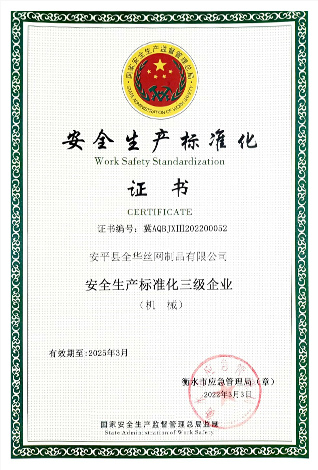Гру . 01, 2024 05:16 Back to list
Manufacturers of Durable Gabion Walls for Effective Retaining Solutions
Understanding Retaining Gabion Walls A Comprehensive Overview
In the realm of civil engineering and landscape design, retaining walls play a vital role in preventing soil erosion, managing water runoff, and creating usable land on slopes. Among the various types of retaining walls, gabion walls have gained significant popularity due to their cost-effectiveness, durability, and eco-friendliness. This article delves into what retaining gabion walls are, their manufacturing process, benefits, and why you might choose a specialized manufacturer for your project.
What are Gabion Walls?
Gabion walls are structures made from wire mesh containers, typically filled with rocks, stones, or occasionally other materials such as concrete. The word gabion originates from the Italian word gabbione, meaning big cage. These cages are assembled into a grid-like form and filled with materials to create a visually appealing, sturdy structure. Used extensively in landscaping, civil engineering, and environmental applications, gabion walls serve primarily as retaining walls to hold back soil and mitigate erosion.
The Manufacturing Process
The manufacturing of retaining gabion walls involves several key steps
1. Material Selection A variety of materials can be used for gabions, including galvanized steel, PVC-coated wire, or stainless steel for increased longevity. The choice depends on the specific requirements of strength, corrosion resistance, and visual appeal.
2. Wire Formation The wire is drawn to the desired gauge, ensuring it has the necessary tensile strength to withstand the weight and pressure exerted by the stones and the forces of nature.
3. Mesh Construction The wire is woven into a mesh format, typically in rectangular or hexagonal shapes, which forms the gabion's structure. This mesh is then cut into panels or pre-fabricated into boxes, depending on the intended use.
4. Filling Once the gabion cages are constructed, they are filled with basketball-sized rocks, stones, or boulders. Care is taken to ensure the fill material is packed tightly, enhancing the stability and strength of the wall.
5. Assembly The filled gabions are then stacked and connected as needed to create a continuous wall. Drainage systems may be incorporated to prevent water buildup, which can otherwise destabilize the structure.
retaining gabion wall manufacturer

Benefits of Gabion Walls
1. Cost-Effectiveness Gabion walls are often less expensive than traditional concrete retaining walls. The materials used for filling are commonly available, and the construction process requires less labor.
2. Environmental Integration The open structure of gabion walls allows for natural water drainage and reduces the risk of hydrostatic pressure buildup behind the wall. Additionally, over time, vegetation may grow in the gaps, further blending the wall into the landscape.
3. Flexibility and Adaptability Gabion walls can be easily adjusted to accommodate various terrains and designs. They can be constructed in different shapes and sizes, making them a versatile option for architecture and landscaping.
4. Durability When properly manufactured and installed, gabion walls are extremely durable. The stone fill protects against erosion, and the wire mesh can withstand harsh weather conditions when treated correctly.
5. Aesthetic Appeal The natural look of stone-filled gabions can enhance the visual aspect of a project. They can be designed to complement the surrounding environment, making them a popular choice in landscaping.
Why Choose a Specialized Manufacturer?
When it comes to constructing retaining gabion walls, it is crucial to choose a reputable manufacturer. A specialized gabion wall manufacturer should possess the following qualities
- Expertise Look for manufacturers with a proven track record in producing high-quality gabions. - Custom Solutions They should offer customized designs to meet specific project needs. - Quality Materials Ensure they use durable and reliable materials to enhance the longevity of the walls. - Customer Support A manufacturer that provides excellent customer service will assist you throughout the project, from planning to installation.
Conclusion
Retaining gabion walls are an innovative solution in landscaping and engineering, providing numerous benefits including cost-effectiveness, durability, and aesthetics. When selecting a manufacturer, it's essential to consider their expertise and the quality of materials used. By investing in a well-constructed gabion wall, you can achieve not only a functional structure but also enhance the beauty of your outdoor space.
-
Understanding Load-Bearing Capacity of Gabion Boxes
NewsJul.17,2025
-
The Importance of Corrosion-Resistant Wire in Gabion Construction
NewsJul.17,2025
-
How Gabion Boxes Prevent Soil Erosion Effectively
NewsJul.17,2025
-
Environmental Benefits of Gabion Cages
NewsJul.17,2025
-
Best Stone Types for Gabion Walls with Steps
NewsJul.17,2025
-
Benefits of Using Rock Gabion Baskets in Landscaping
NewsJul.17,2025
-
The Role of Galvanized Gabion Mesh in Riverbank Protection
NewsJun.26,2025






